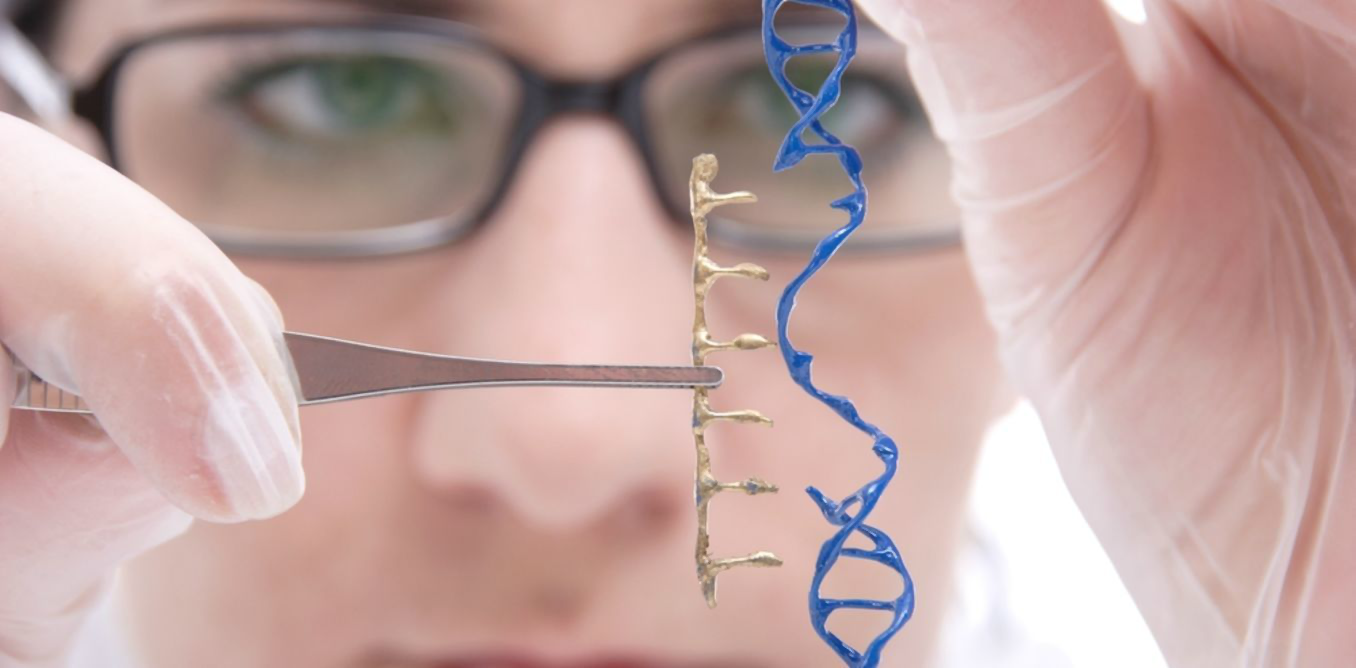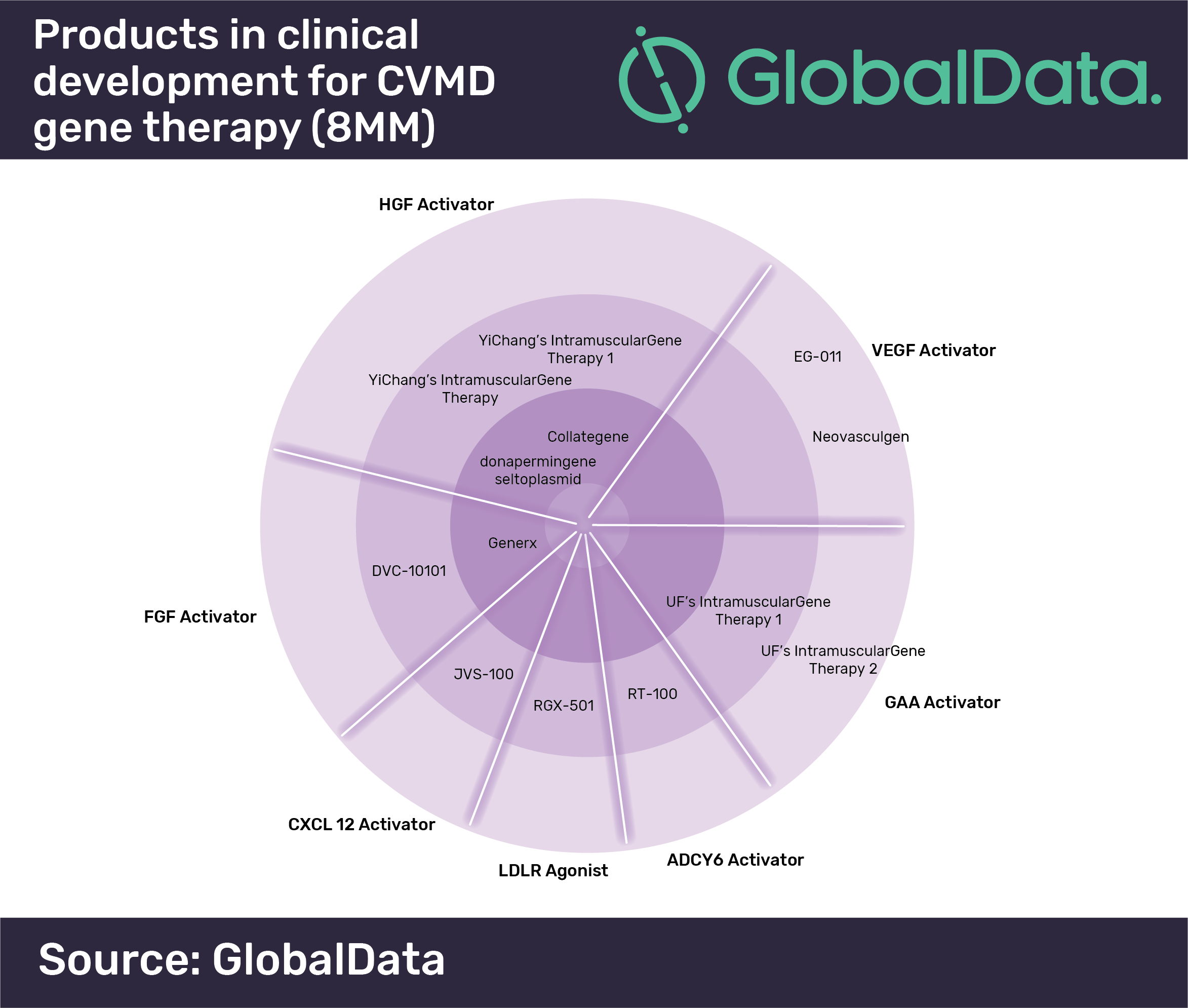
Gene therapies have been a point of discussion during the last several years as a potential curative option for a variety of disease indications. The majority of the cardiovascular and metabolic disorder (CVMD) gene therapies in development are targeting cardiovascular indications, indicating immense opportunity for biotech companies to pursue drug candidates that target metabolic disorders, says leading data and analytics company GlobalData.
The company’s report, ‘Gene Therapy in CVMD’ focused on CVMD gene therapies, which included candidates targeting coronary artery disease, critical limb ischemia, diabetic foot ulcers and Pompe Disease, and that are in development in the eight major markets (8MM; the US, France, Germany, Italy, Spain, the UK, Japan and urban China). The report found that big pharma companies lag behind small bio-techs in R&D efforts.
In addition, the report reveals that, despite investment in CVMD gene therapies, the majority of the candidates across the 8MM are still in early R&D stages, whereas only a handful of CVMD gene therapies are in Phase II or Phase III clinical trials.
Within the entire CVMD space, the current gene therapy pipeline features approximately 13 candidates that are in Phase I, II or III of clinical development. Only three gene therapies have reached Phase III trials: AnGes MG’s Collategene, Angionetics’ Generx and ViroMed’s donaperminogene seltoplasmid.

Pavan Kottamasu, Healthcare Analyst at GlobalData, says: “Of the pipeline CVMD gene therapies, the majority of them target cardiovascular indications such as coronary artery disease, peripheral artery disease, critical limb ischemia, and systolic heart failure, indicating a massive opportunity for biotech companies to develop drug candidates that target metabolic disorders.”
Key opinion leaders interviewed by GlobalData anticipate big pharma companies to partner with these smaller biotech companies to enhance development of gene therapy candidates within the next decade.
Gene therapies have been on the spotlight due to its core fundamentals and its early stages of development. According to US NIH institution, “gene therapy is an experimental technique that uses genes to treat or prevent disease. In the future, this technique may allow doctors to treat a disorder by inserting a gene into a patient’s cells instead of using drugs or surgery. Researchers are testing several approaches to gene therapy, including: replacing a mutated gene that causes disease with a healthy copy of the gene; inactivating, or “knocking out,” a mutated gene that is functioning improperly and introducing a new gene into the body to help fight a disease.”
Although gene therapy is a promising treatment option for a number of diseases (including inherited disorders, some types of cancer, and certain viral infections), the technique remains risky and is still under study to make sure that it will be safe and effective. Gene therapy is currently being tested only for diseases that have no other cures, as the last stand. After this new report, that might change in the near future

Founder Dinis Guarda
IntelligentHQ Your New Business Network.
IntelligentHQ is a Business network and an expert source for finance, capital markets and intelligence for thousands of global business professionals, startups, and companies.
We exist at the point of intersection between technology, social media, finance and innovation.
IntelligentHQ leverages innovation and scale of social digital technology, analytics, news and distribution to create an unparalleled, full digital medium and social business network spectrum.
IntelligentHQ is working hard, to become a trusted, and indispensable source of business news and analytics, within financial services and its associated supply chains and ecosystems.
























